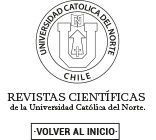Positive periodic solutions for neutral functional differential systems.
Keywords:
Krasnoselskii, Neutral Functional differential System, Positive periodic solutionsAbstract
We study the existence of positive periodic solutions of a system of neutral differential equations. In the process we construct two map- pings in which one is a contraction and the other compact. A Krasnoselskii's fixed point theorem is then used in the analysis.
References
T. A. Burton, Stability by Fixed Point Theory for functional Differential Equations, Dover, New York, (2006).
E. Beretta, F. Solimano, Y. Takeuchi, A mathematical model for drug administration by using the phagocytosis of red blood cells, J. Math Biol. 10 Nov; 35 (1), pp. 1-19, (1996).
Y. Chen, New results on positive periodic solutions of a periodic integro-differential competition system, Appl. Math. Comput., 153 (2), pp. 557-565, (2004).
F. D. Chen, Positive periodic solutions of neutral Lotka-Volterra system with feedback control, Appl. Math. Comput., 162 (3), pp. 1279- 1302, (2005).
F. D. Chen, Periodicity in a nonlinear predator-prey system with state dependent delays, Acta Math. Appl. Sinica English Series, 21 (1) (2005), pp. 49-60, (2005).
F. D. Chen, S. J. Lin, Periodicity in a logistic type system with several delays, Comput. Math. Appl., 48 (1-), pp. 35-44, (2004).
F. D. Chen, F. X. Lin, X. X. Chen, Sufficient conditions for the existence of positive periodic solutions of a class of neutral delay models with feedback control, Appl. Math. Comput., 158 (1), pp. 45-68, (2004).
M. Fan, K. Wang, Global periodic solutions of a generalized n-species Gilpin-Ayala competition model, Comput. Math. Appl., 40, pp. 1141- 1151, (2000).
M. Fan, P. J. Y. Wong, Periodicity and stability in a periodic n-species Lotka-Volterra competition system with feedback controls and deviating arguments, Acta Math. Sinica,, 19 (4), pp. 801-822, (2003).
M. E. Gilpin, F. J. Ayala, Global Models of Growth and Competition, Proc. Natl. Acad. Sci., USA 70, pp. 3590-3593, (1973).
A. Datta and J. Henderson, Differences and smoothness of solutions for functional difference equations, Proceedings Difference Equations 1, pp. 133-142, (1995).
J. Henderson and A. Peterson, Properties of delay variation in solutions of delay difference equations, Journal of Differential Equations 1, pp. 29-38, (1995).
D. Jiang, J. wei, B. Zhang, Positive periodic solutions of functional differential equations and population models, Electron. J. Diff.Eqns., Vol. No. 71, pp. 1-13, (2002).
M. A. Krasnosel’skii, Positive solutions of operator Equations Noordhoff, Groningen, (1964).
L. Y. Kun, Periodic solution of a periodic neutral delay equation, J. Math. Anal. Appl.,, 319, pp. 315-325, (2006).
Y. Li, Y. Kuang, Periodic solutions of periodic delay Lotka-Volterra equations and systems, J. Math. Anal. Appl., 255, pp. 260-280, (2001).
M. Maroun and Y. Raffoul, Periodic solutions in nonlinear neutral difference equations with functional delay, Journal of Korean Mathematical Society 42, pp. 255-268, (2005).
Y. Raffoul, Periodic solutions for scaler and vector nonlinear difference equations, Pan-American Journal of Mathematics 9, pp. 97-111, (1999).
Y. N. Raffoul, Periodic solutions for neutral nonlinear differential equations with delay, Electron. J. Diff. Eqns., Vol. No. 102, pp. 1-7, (2003).
Y. Raffoul, Positive periodic solutions in neutral nonlinear differential equations, Electronic Journal of Qualitative Theory of Differential Equations 16, pp. 1-10, (2007).
Y. Raffoul, Existence of positive periodic solutions in neutral nonlinear equations with functional delay, Rocky Mount. Journal of Mathematics 42(6), pp. 1983-1993, (2012).
N. Zhang, B. Dai, Y. Chen, Positive periodic solutions of nonautonomous functional differential systems, J. Math. Anal., 333, pp. 667- 678, (2007).
Published
How to Cite
Issue
Section
-
Attribution — You must give appropriate credit, provide a link to the license, and indicate if changes were made. You may do so in any reasonable manner, but not in any way that suggests the licensor endorses you or your use.
- No additional restrictions — You may not apply legal terms or technological measures that legally restrict others from doing anything the license permits.











